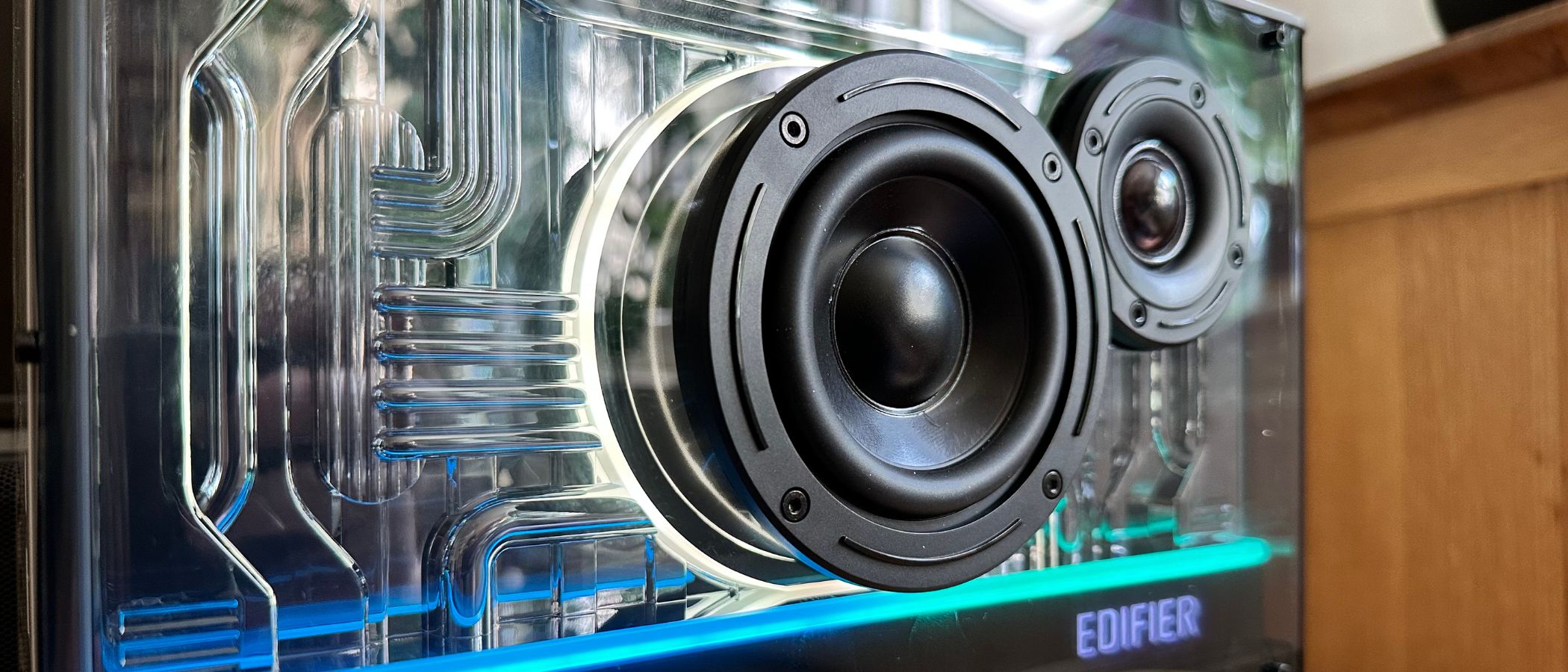iMore Verdict
The Edifier QD35 may be one of the coolest-looking speakers out there, but it needs some work sonically. The lower register needs a look specifically – and it's mono.
Pros
- +
Built like a tank
- +
GAN charging is a great addition
- +
It looks phenomenal
Cons
- -
It’s Mono, and you can tell
- -
No internal battery - a big missed opportunity
- -
Under-utilized RGB
- -
Little in the way of sub-bass
You can always trust iMore.
RGB lights – love them or hate them, they’re a thing that companies are going to stick into their products, be that a mouse, a keyboard, or, in this case, a speaker. It’s not the first time, and it’s not the last time, but this is certainly one of the prettier implementations.
The Edifier QD35 is a very slick-looking Bluetooth speaker, with some very cool extra features like new charging standards for smartphones and other smart devices. It looks like it could be a great bedside table speaker or even one that sits on a desk – but a speaker is nothing if it doesn’t sound good.
Edifier QD35: Price and availability
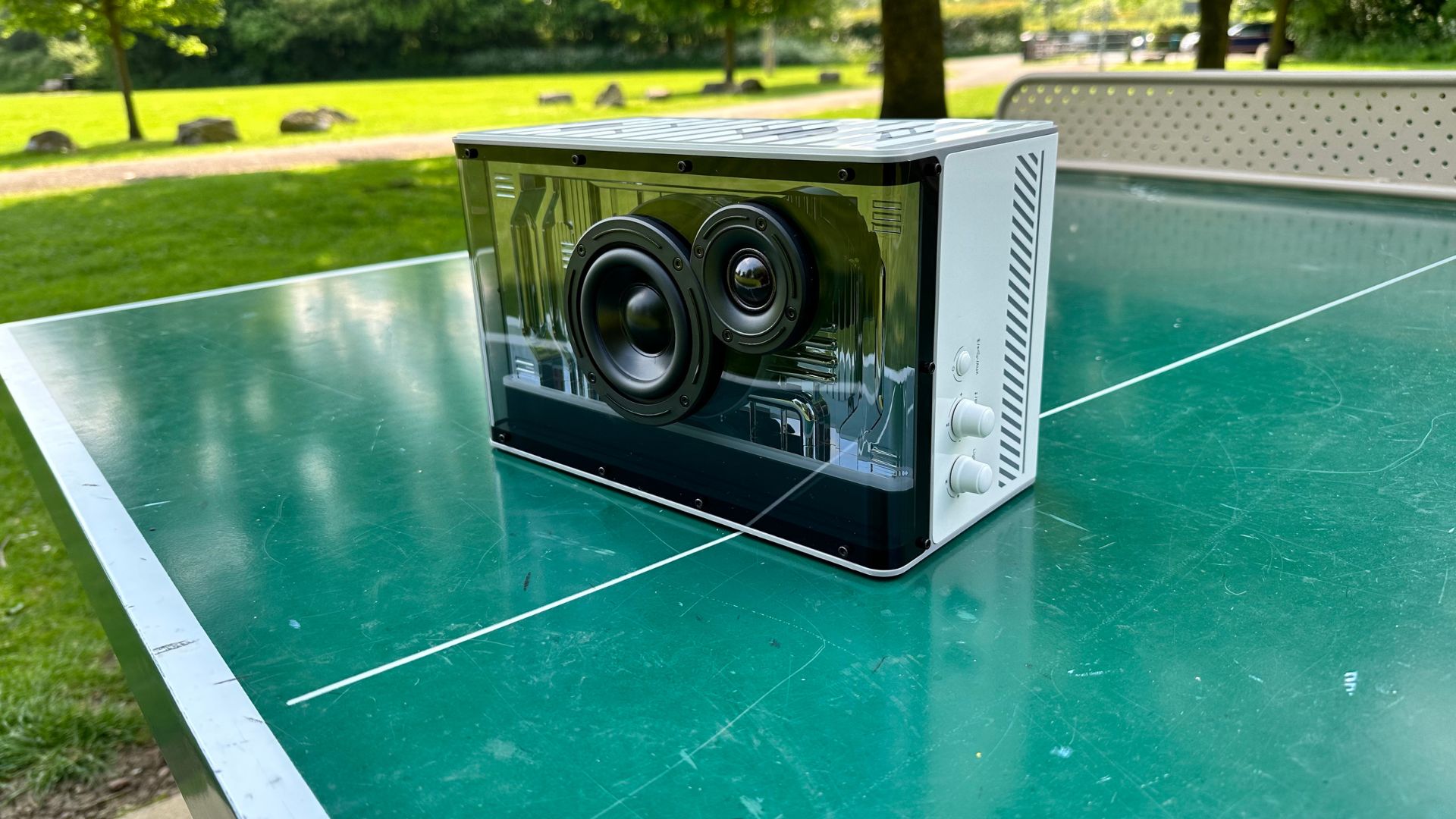
The Edifier QD35 is available for $199/£179, and you can find it directly on Edifier's website, or on some stockists. That’s not cheap for a Bluetooth speaker that needs to remain plugged in, and there are some cheaper options that sound better (something we’ll get onto later).
We can see this being a great speaker for a younger audience, although that price makes us wonder where it is actually aimed. If you want some cool lights and divisive industrial design, then there’s nothing quite like the QD35 – if you want something that actually sounds good, you don't even have to spend half the price.
Edifier QD35: What I liked
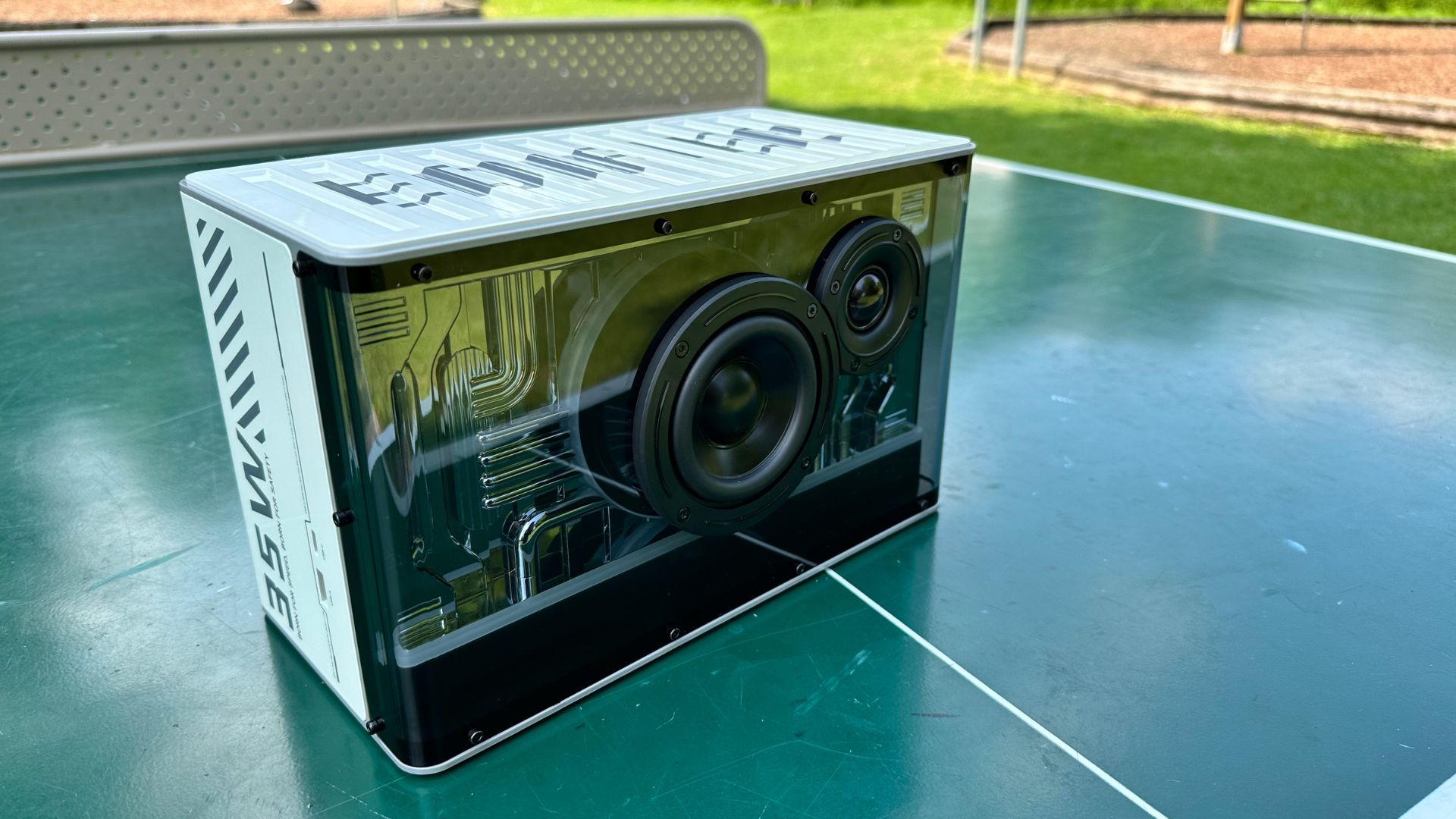
I know it’s going to be a divisive opinion for this speaker, but I quite like the way that the QD35 looks, with its weird shipping container top panel, massive clear acrylic front that shows a slab of molded and chromed plastic (that looks a little on the cheap side), and it’s RGB strip that’s actually pretty well diffused. It looks fun, and where loads of speakers are going for a subdued, tabletop look, this one tries to be different.
It’s not going to be to everyone’s taste, however, and I recognize that – but at least it's tried something new. Also, this brings something new to a Bluetooth speaker in the form of a GAN charging port on the back. Because the speaker is powered not by batteries but by the mains, it's able to feed lots of power through a USB port on the back, enabling fast charging for supported devices. Your best iPhone will charge at full pelt, and Android handsets with fast charging will fill up in no time at all. It’s a nice addition – although one that feels a little like it's there to say “LOOK, SOMETHING DIFFERENT!”
It’s a nice addition – although one that feels a little like it's there to say “LOOK, SOMETHING DIFFERENT!”
The Audio inputs are solid too, with Bluetooth handling wireless audio, a pair of USB ports for one form of line-in, and a 3.5mm headphone jack for another. They all work well – although while it says it's a Hi-Res speaker, these connections seem unable (according to all the software I use) of handling any kind of proper Hi-Res or lossless signal. For most people, however, that’s not going to be an issue, and given how the speaker sounds, it’s hardly going to bother those interested in high-quality audio.
iMore offers spot-on advice and guidance from our team of experts, with decades of Apple device experience to lean on. Learn more with iMore!
The whole package is also put together remarkably well – and you’d hope so, when the speaker costs $200. That’s not a small price, and it makes me wonder if the above things are enough to make me overlook one of the biggest elephants in the room…
Edifier QD35: How does it sound?
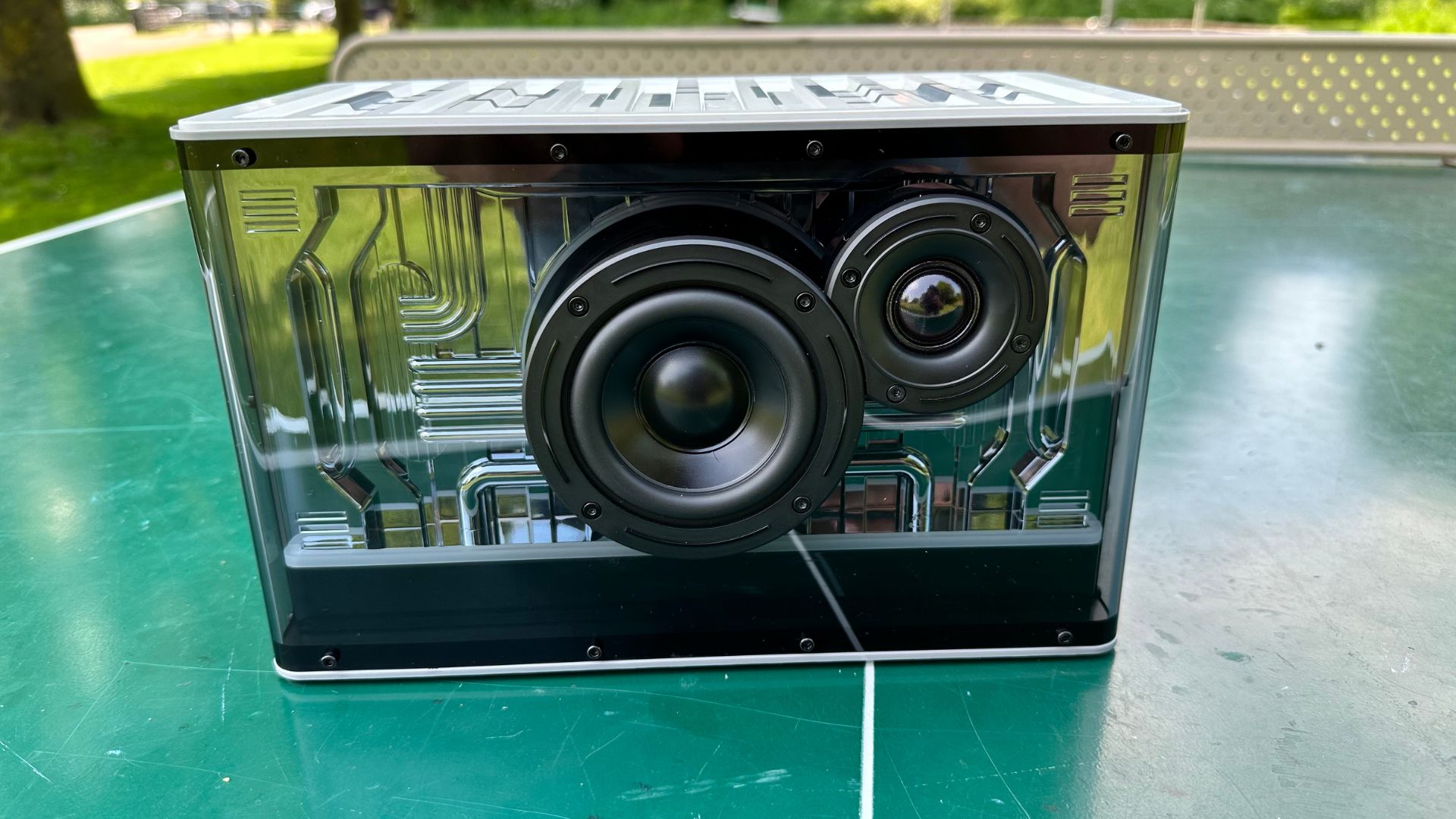
Usually, in reviews of this format, I’d put aspects of the sound in one of the two ‘things I like’ and ‘things I don’t’ like segments, and discuss the merits and demerits separately – but here, I feel it important to analyze the sound as a whole, and evaluate it in one section to itself.
The QD35 doesn’t sound bad, I should start off. Instead, it sounds more ‘inoffensive’ – to the untrained ear that still uses Apple EarPods or the Bluetooth speaker they got with their cell plan a couple of years ago, it’s going to be fine. The trouble is that given the way that the Bluetooth speaker landscape looks now, if you’re going to release a $200 speaker that has to be tethered to a power outlet, it better justify that with some excellent sound quality.
And unfortunately, it simply doesn’t, and as such is lacking in some key areas. There is no sub-bass. None. Nada. It’s about as weak in the low end as a speaker can be; which is no surprise, given there’s no passive bass radiator and the size of the tiny venting outlets on the back.
Instead, there is a tweeter for the top end and a mid-bass driver for the rest of the frequencies. To compensate for the lack of a bass driver or radiator, the sound profile has been heavily weighted to the mid-bass section, which leads to boomy guitars, hollow drums, and drowned-out highs and vocals. This is being hyper-critical, yes – but that price tag demands that we must be.
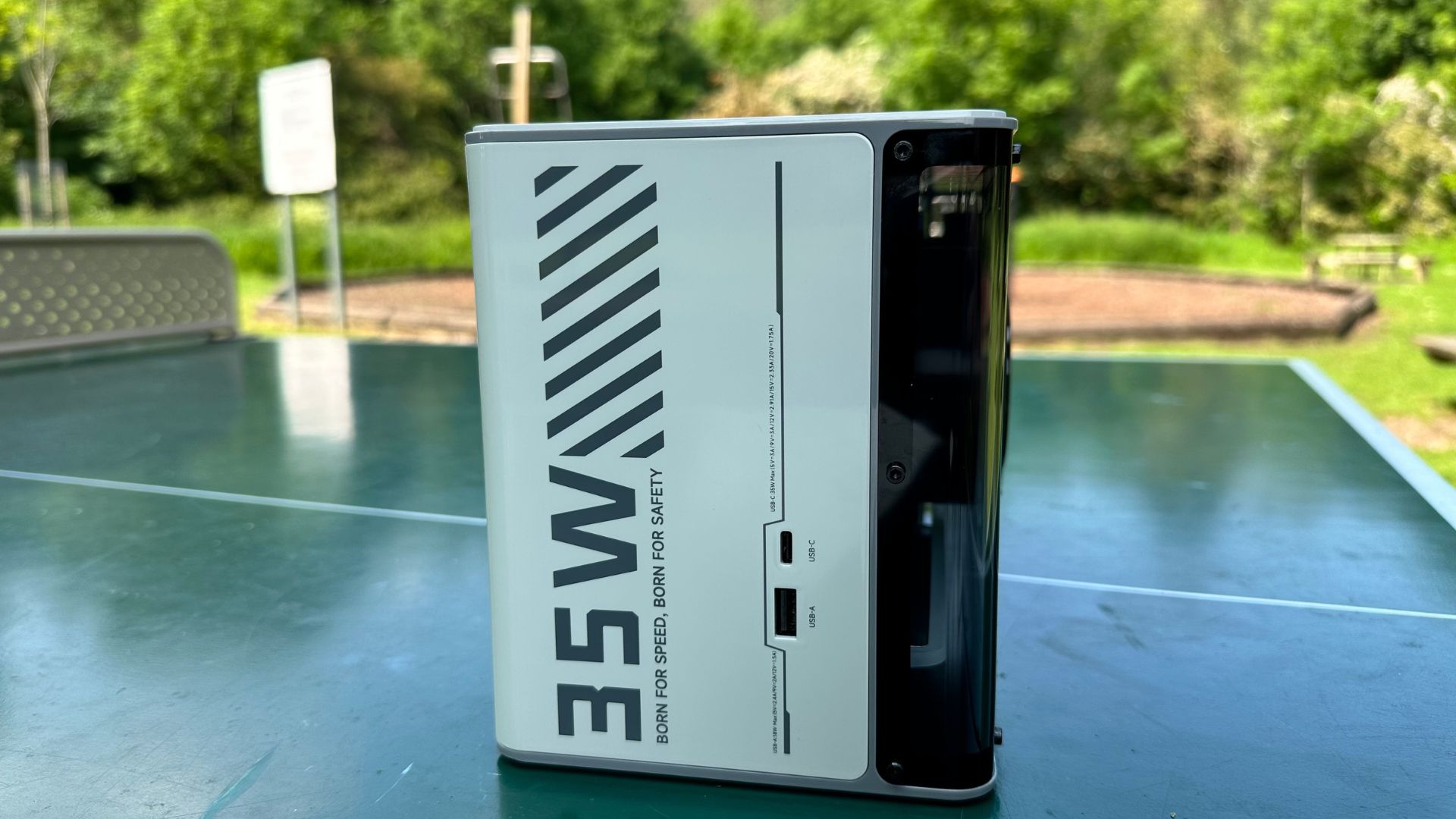
Let’s listen to some music to help us evaluate things. Kamelot’s March of Mephisto is a big and epic track, yet here it sounds more like a plod through the woods rather than a souring symphonic journey through fantasy. The guitar is muffled by the booming mid-bass, and the mids are muddled by the presence of the single driver.
The tweeter doesn’t seem to be doing much here either, as the highs of the female vocals during the track are lost in a sea of mid-range mess. I should reiterate that to most, it’s just going to sound like ‘a speaker’ – but at this price, it should be more.
The one-speaker setup also lends another problem to the speaker – it’s mono, and you can feel it. That dramatically narrows the soundstage, meaning it has to be pointing directly at you so that you can experience the sound as it's supposed to be heard – and even then, mixed with the messy sound profile, there’s very little instrument separation to keep you listening.
While most small Bluetooth speakers are mono, they tend to use clever engineering to make them sound more spacious, or offer extra stereo soundstage when you add another speaker – an option, unfortunately, missing from the QD35.
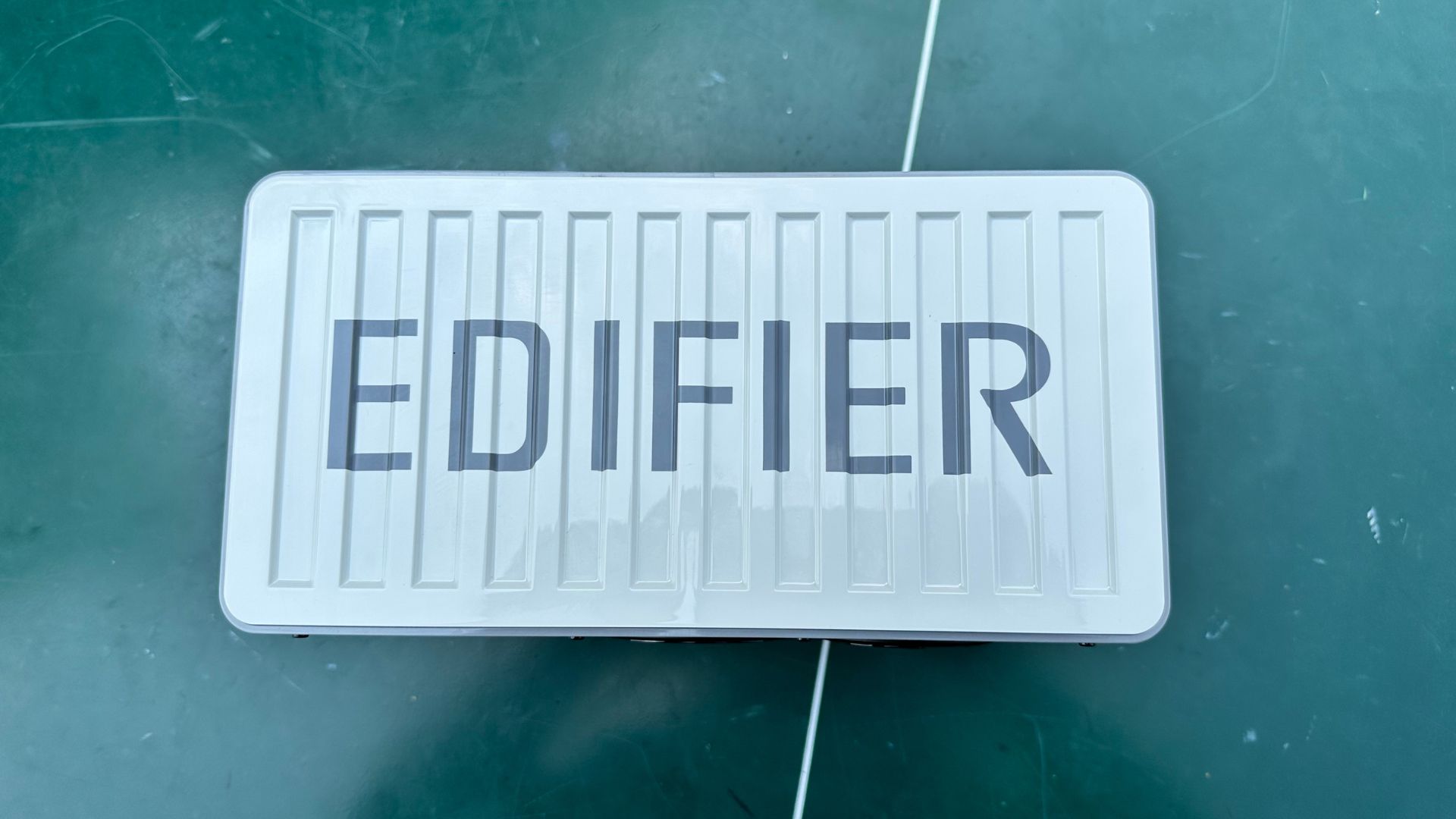
You can change the EQ in the Edifier Connect app and make the sound a little better, with more emphasis on the high register. This doesn’t make the speaker any kind of fatiguing to listen to, but it still leaves it with nowhere near enough bass response.
With my boosts to the high end and reduction in the bass, I span up Bobby Caldwell’s What you won’t Do for Love. Here, the vocals are now given more space to breathe, and the keys are more impactful. The drums, however, are as flat as a pancake, following the track with a dull “duff.” It’s better – but still not good enough.
Here’s the thing – if the speaker cost $100, then the sound would make more sense, and I’d be a whole lot kinder to it. But I’ve tried speakers half the price of this one that sounds much, much better and can even be taken out and about.
Edifier QD35: What I didn’t like
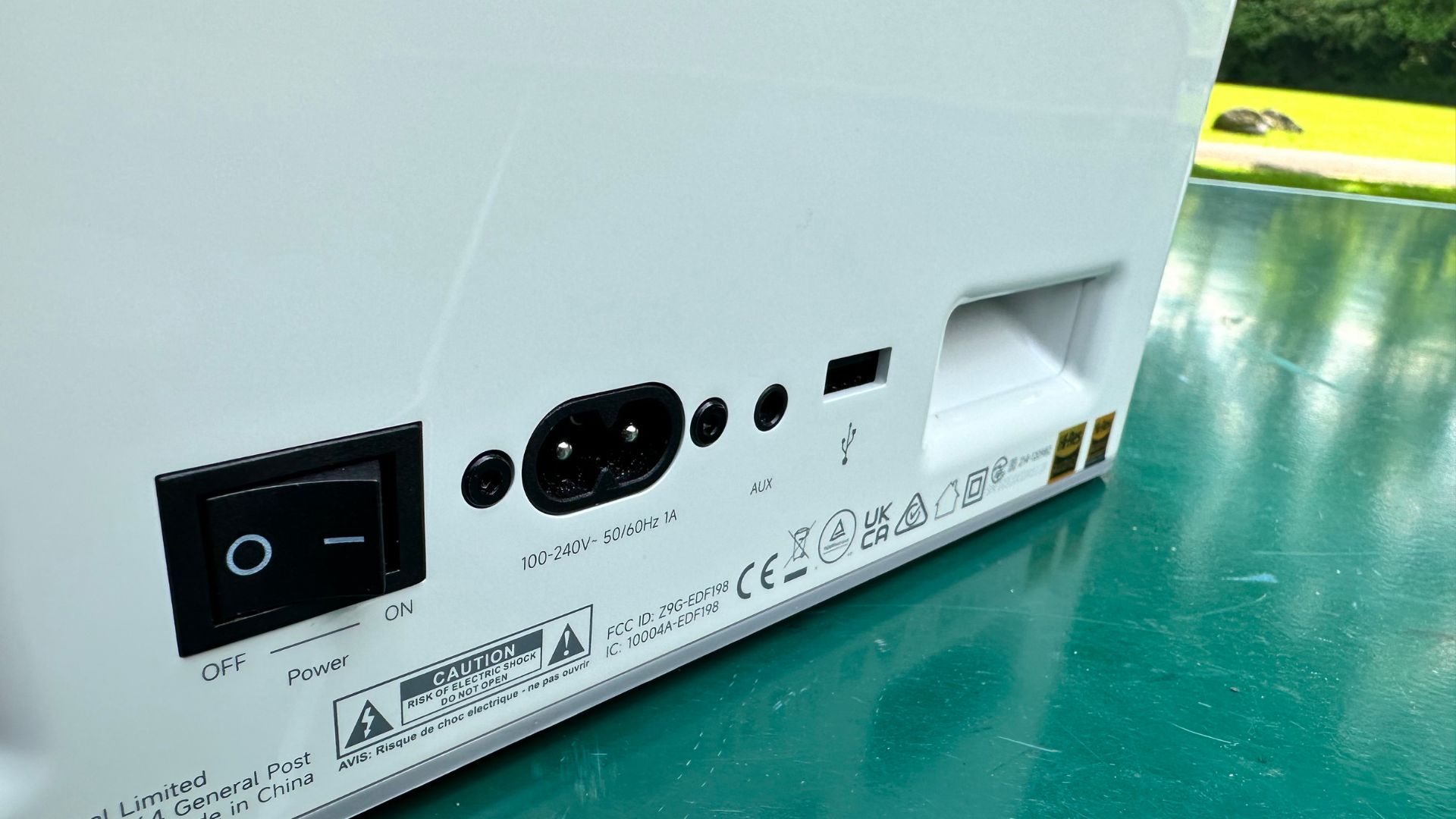
There’s more too, beyond the sound quality of the speaker. I wish it had a battery so that it could be taken out and about – that might remove the GAN charging, but I’d rather have a mobile speaker rather than a GAN charging brick with lights and sounds. And it's likely you will too.
Those lights as well – on initial inspection, they’re really nice. They look good, and there are some cool options and patterns in the app. But they’re also a massive missed opportunity, in that they don’t follow what the music is doing. They have static patterns that they follow, rather than doing cool light shows along to Watain, or Taylor Swift.
Edifier QD35: Competition
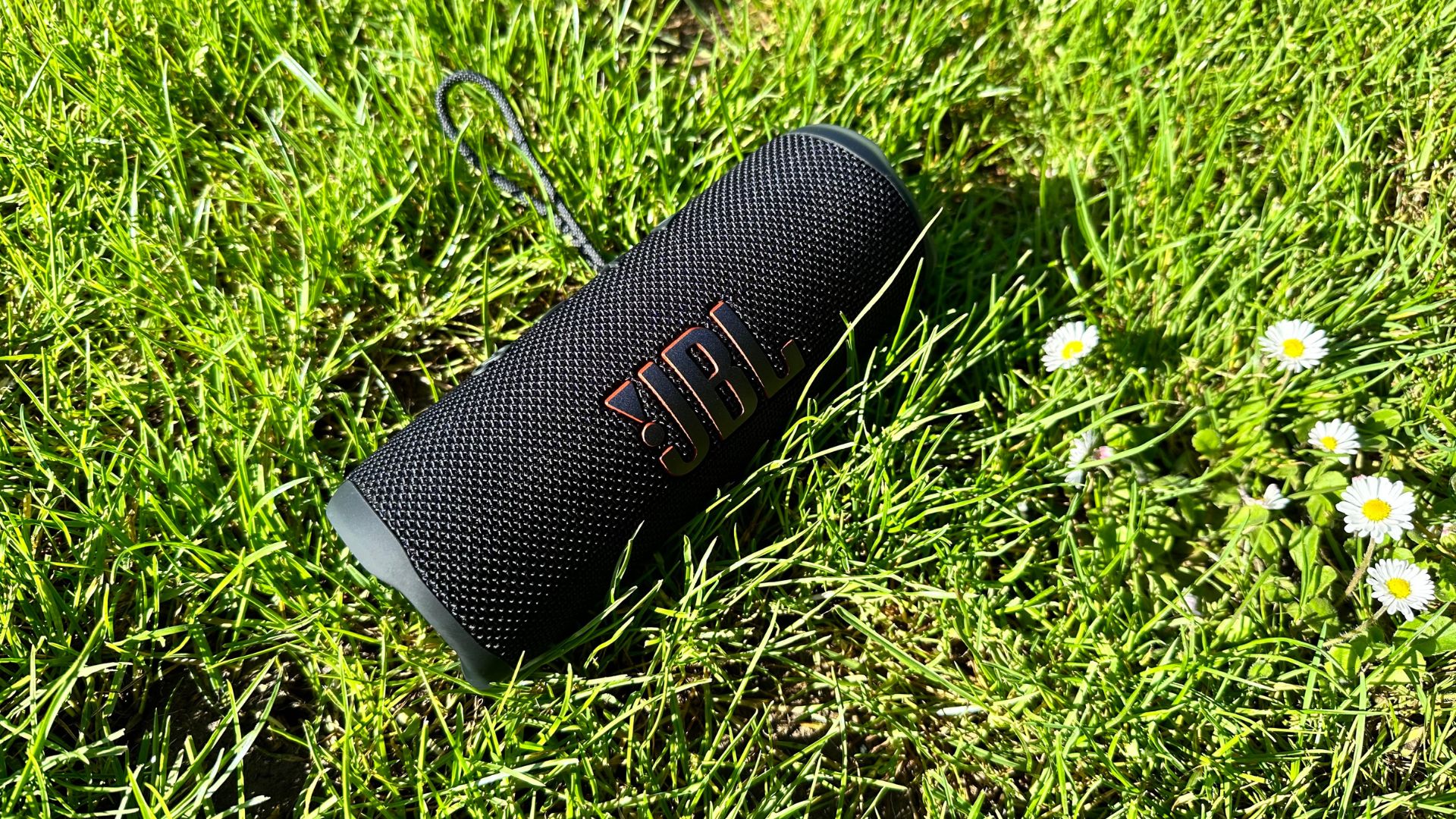
There are loads of better options out there. If you want something plugged in, then there’s the HomePod 2 which will sound better and slip into your decor far better for only $50 more.
If you want to save some money, spend $100 less and pick up a JBL Flip 6 for something that sounds slightly better and has a built-in battery. Spend $50 less and get the monster Anker Soundcore Motion Boom Plus, for much better sound, loads more actual bass, and some truly ridiculous volume – and an internal battery. If you spot the QD35 for around $100, then it’s ok. It's fine. For anything more than that, go elsewhere.
Edifier QD35: Should you buy this?
You should buy this if:
- You want something that looks more interesting than some other options
- You like colorful lights
You shouldn’t buy this if:
- You want something that sounds better than ‘OK’
- You want a cheap speaker
- You want a mobile speaker
Edifier QD35: Verdict
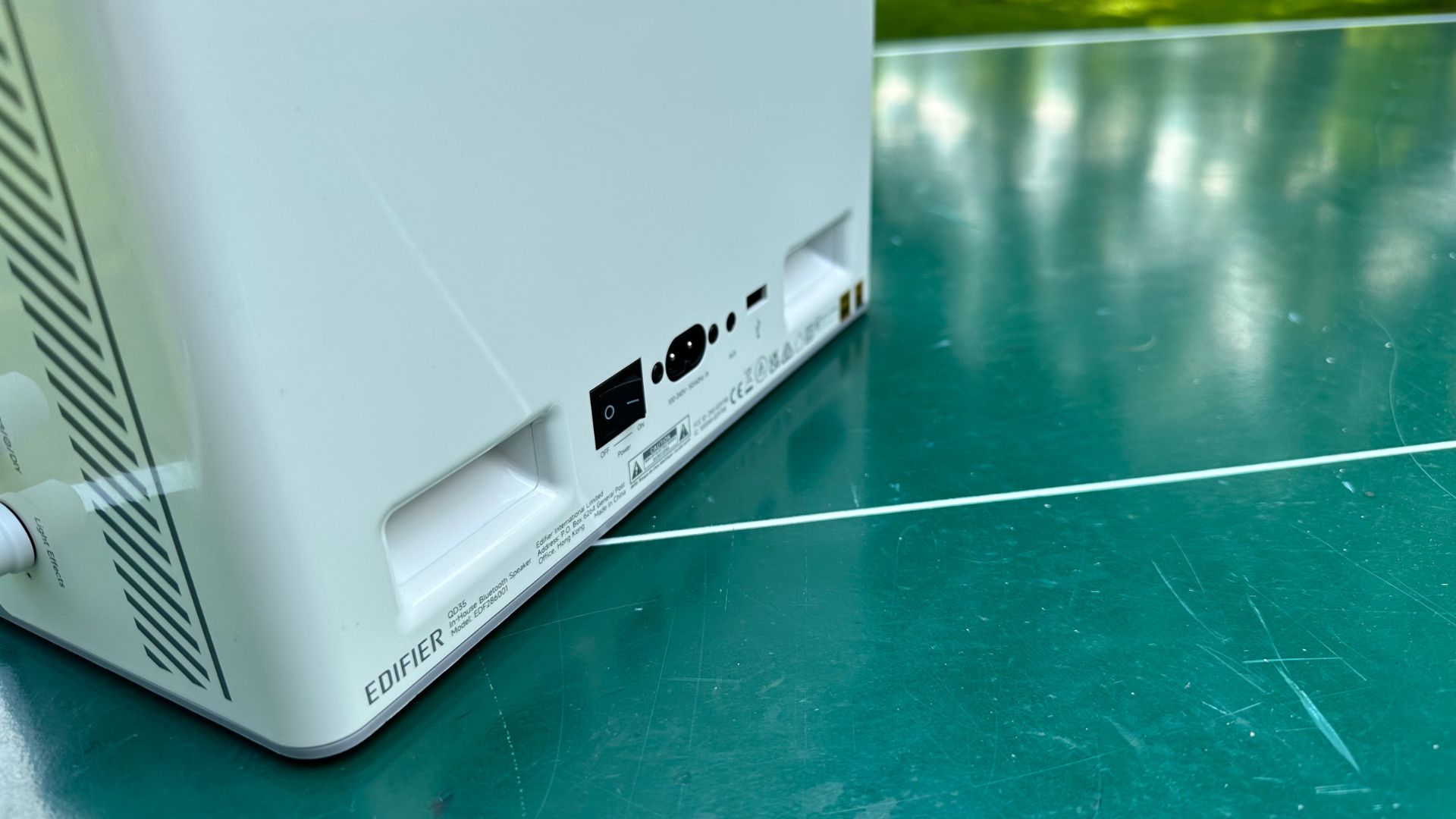
The QD35 is a speaker at the wrong price point. If it were $100 less, it would be a solid bedroom speaker for kids, with a relatively low max volume and those RGB lights. As it stands, however, it’s one to avoid at its $200 price point. It’s a real shame, because I love a lot of the other products that Edifier has put out – but this one, as I believe the kids say, ‘Ain’t it chief.'
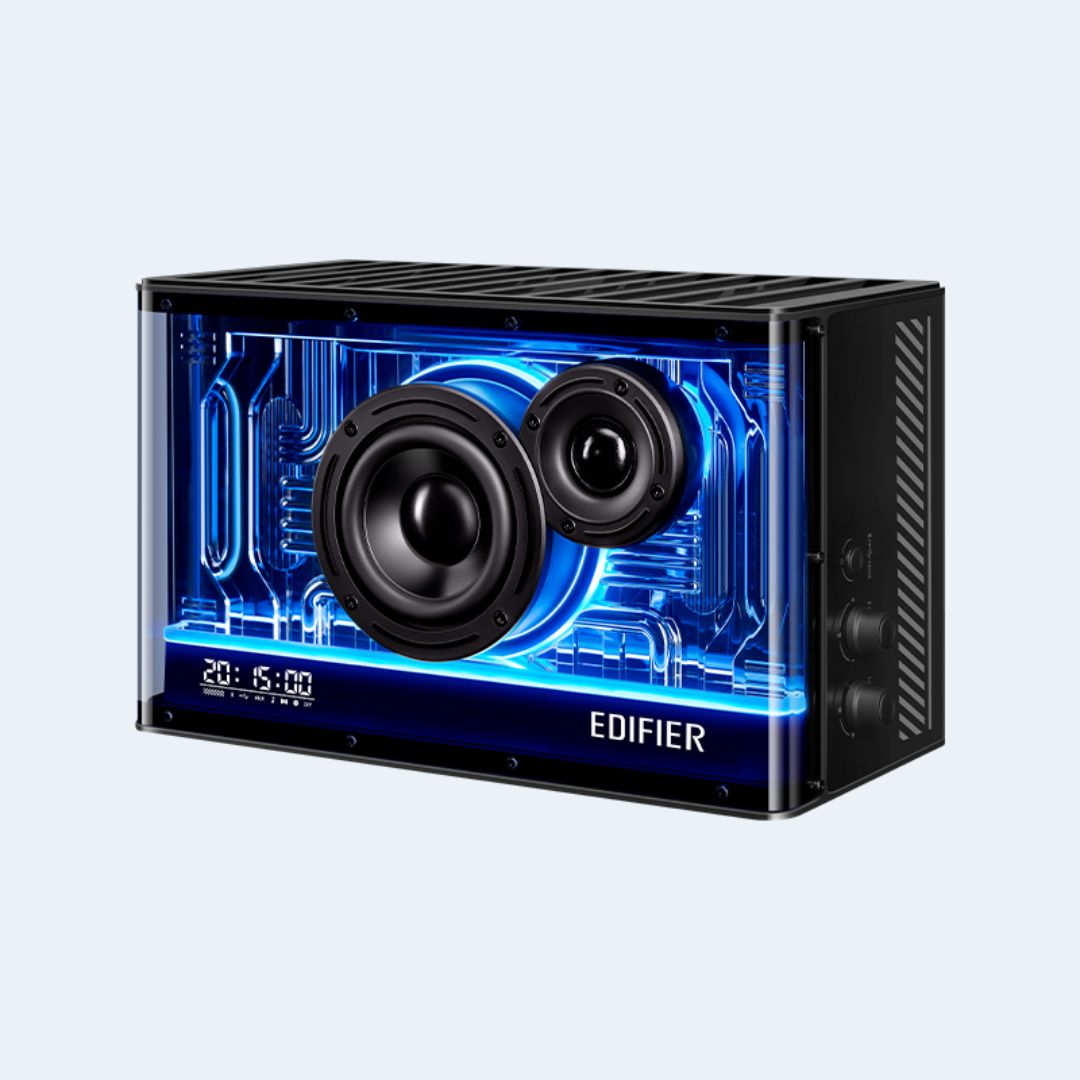
Just too expensive
That high price tag means that the QD35 needs to be evaluated alongside some other great Bluetooth speakers – and unfortunately, it simply doesn’t stack up.

As iMore's Senior Staff writer, Tammy uses her background in audio and Masters in screenwriting to pen engaging product reviews and informative buying guides. The resident audiophile (or audio weirdo), she's got an eye for detail and a love of top-quality sound. Apple is her bread and butter, with attention on HomeKit and Apple iPhone and Mac hardware. You won't find her far away from a keyboard even outside of working at iMore – in her spare time, she spends her free time writing feature-length and TV screenplays. Also known to enjoy driving digital cars around virtual circuits, to varying degrees of success. Just don't ask her about AirPods Max - you probably won't like her answer.
